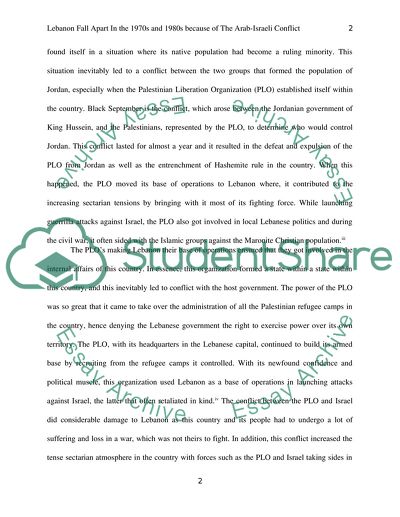Cite this document
(Did Lebanon Fall Apart In the 1970s and 1980s because of the Term Paper, n.d.)
Did Lebanon Fall Apart In the 1970s and 1980s because of the Term Paper. Retrieved from https://studentshare.org/politics/1616019-did-lebanon-fall-apart-in-the-1970s-and-1980s-because-of-the-arab-israeli-conflict
Did Lebanon Fall Apart In the 1970s and 1980s because of the Term Paper. Retrieved from https://studentshare.org/politics/1616019-did-lebanon-fall-apart-in-the-1970s-and-1980s-because-of-the-arab-israeli-conflict
(Did Lebanon Fall Apart In the 1970s and 1980s Because of the Term Paper)
Did Lebanon Fall Apart In the 1970s and 1980s Because of the Term Paper. https://studentshare.org/politics/1616019-did-lebanon-fall-apart-in-the-1970s-and-1980s-because-of-the-arab-israeli-conflict.
Did Lebanon Fall Apart In the 1970s and 1980s Because of the Term Paper. https://studentshare.org/politics/1616019-did-lebanon-fall-apart-in-the-1970s-and-1980s-because-of-the-arab-israeli-conflict.
“Did Lebanon Fall Apart In the 1970s and 1980s Because of the Term Paper”. https://studentshare.org/politics/1616019-did-lebanon-fall-apart-in-the-1970s-and-1980s-because-of-the-arab-israeli-conflict.


